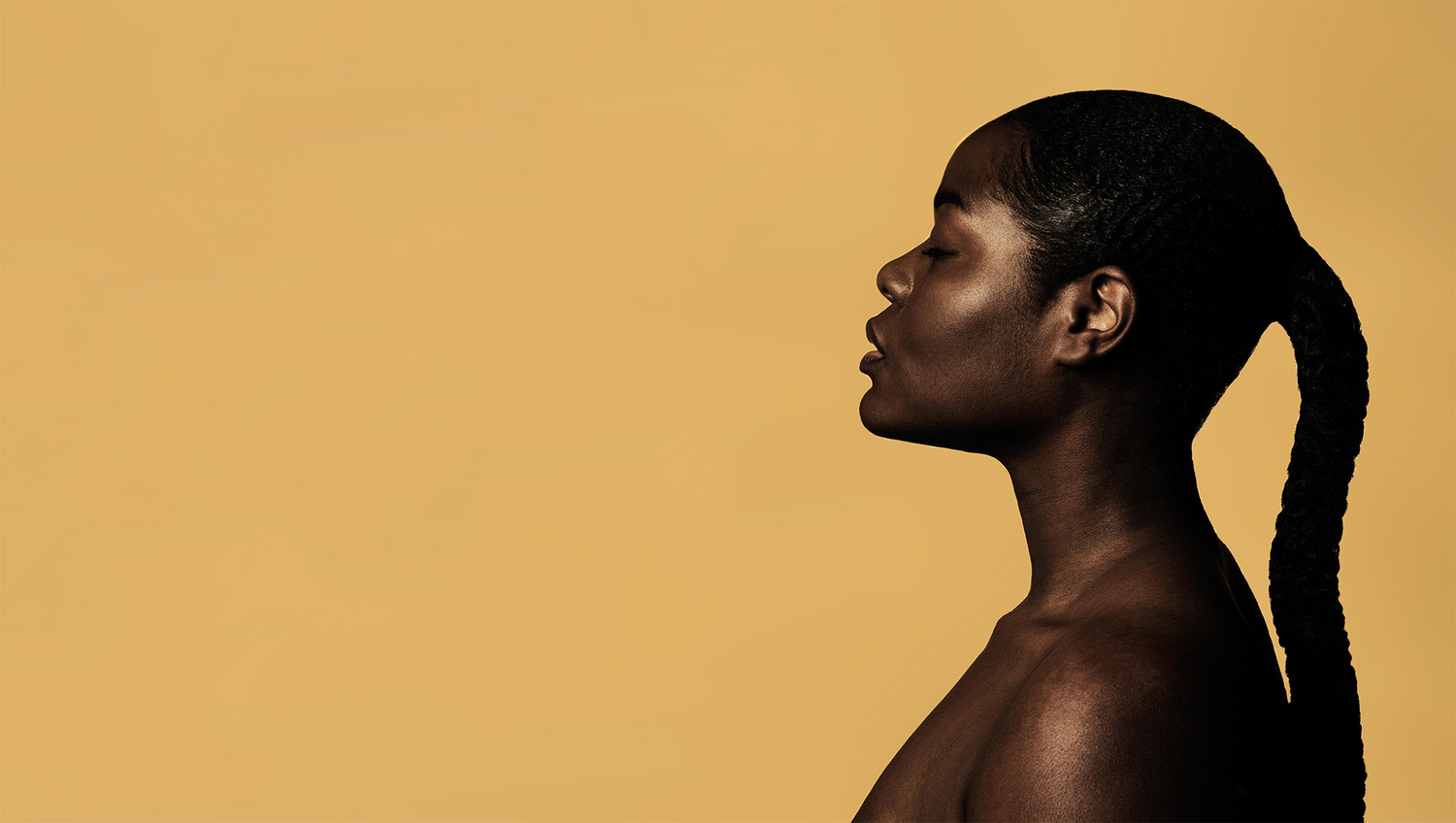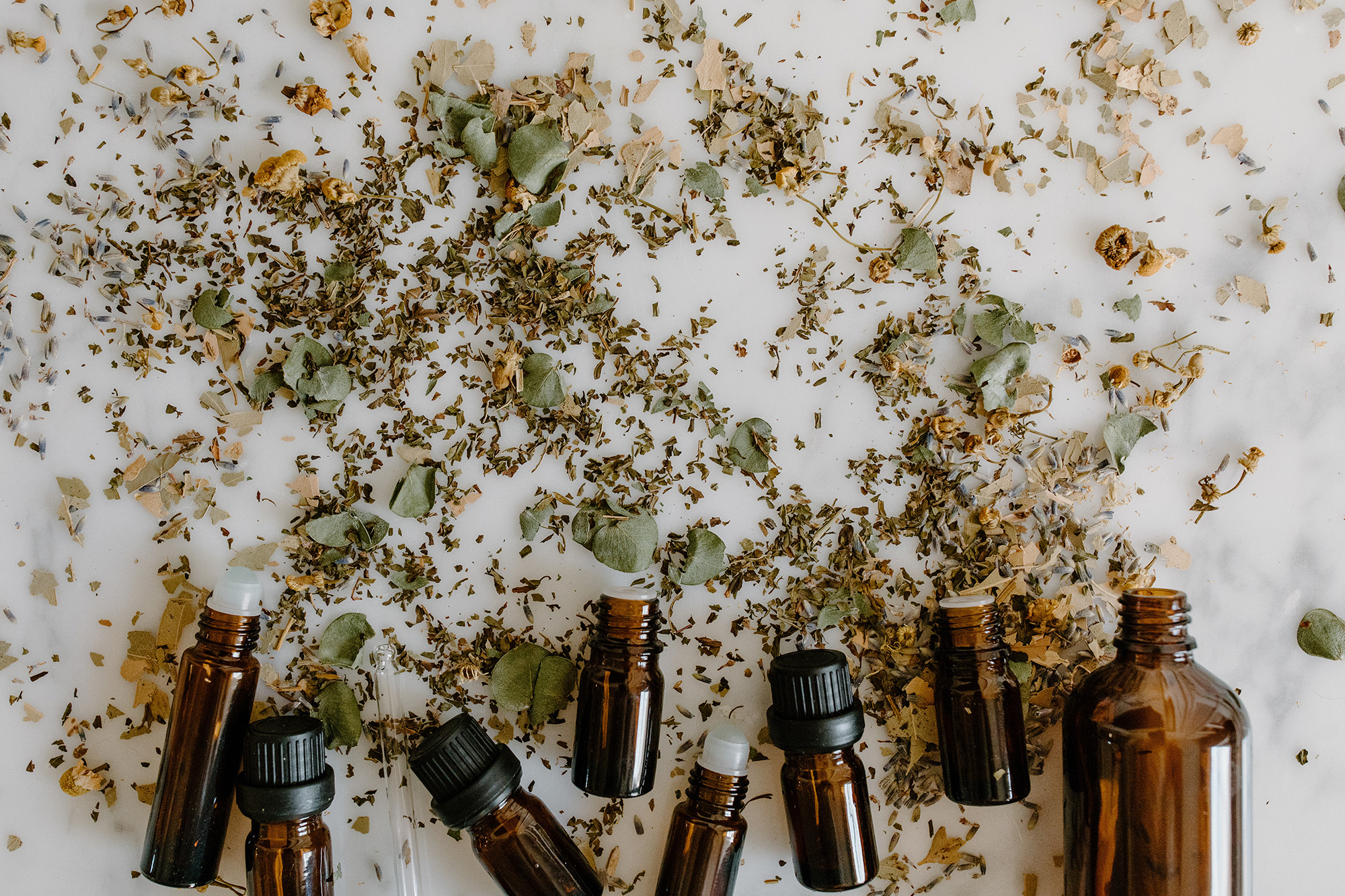What does beauty actually mean?
The question may sound simple at first, but answering it honestly is easier said than done.
In our society, there is a clear idea of what is considered "beautiful" and we are confronted with this prevailing ideal of beauty every day: In advertising, on social media, while shopping, on billboards, just everywhere and more and more! We are inundated with images of toned bodies, symmetrical faces, healthy hair and flawless skin.
If we are aware of this, we can learn to deal with it. Too often, however, we allow ourselves to be subconsciously influenced by it and begin to accept this ideal of beauty as our own, as the only true thing. In the long run, this can gnaw at our self-worth and lead to the fact that we suddenly no longer find ourselves beautiful and become increasingly dissatisfied with ourselves and our appearance. But why is that and what can we do about it?

Beauty ideals and the value of women
For, well, ever, women have been judged by their appearance. A woman's job has always been to be "beautiful." And nothing else. What exactly "beautiful" means, however, has changed again and again over the years.
For centuries, a voluptuous, "well-fed" female body was considered the ideal of beauty, representative of prosperity and fertility. Many years later, the wasp waist followed as the ideal image, with wide hips and large breasts. In the twentieth century, the ideal changed again; now slender women's bodies with short hair were the order of the day. In the post-war period, the curvy woman returned as an ideal of beauty. And then in the 60s the body ideal of a slim woman, today probably called underweight, gained the attention of society. Today, the predominant beauty ideal is embodied by the fit and toned woman. The classic "bikini figure."
The value of women has also always been defined mainly, if not exclusively, by appearance and attractiveness. Personality attributes, character traits, competencies and skills are rather less important. Those who are not beautiful and do not stay young forever are also of less value.
The resulting pressure from society and also one's own belief that only exactly this one body ideal is "beautiful" can lead in the long term to the desire to want to conform to the ideal. If this does not succeed, it can also lead to a feeling of inferiority and of not being enough.

But what the evolution of beauty ideals over time can show us is that the particular ideal is so culturally and temporally conditioned that it ultimately loses meaning and importance completely. After all, you can look at it this way: If you had been born maybe 100, 200 or 300 years earlier, you would correspond perfectly to the current ideal. So how useful is it really to listen to society and its ideas?
But let's be honest, our society has certainly evolved in many ways, but the ideals of beauty have always remained. And so has the condemnation of the female body. Those who cannot live up to the ideal are often confronted with condemnation and contempt:
You don't take enough care of yourself and your body.
You don't live healthy enough.
Why don't you do more sports? You're not making any effort at all.
The really scary thing is that the condemnation doesn't always come from the outside. Too often it comes directly from within ourselves.
Consequences of the beauty craze
The ideal of beauty is more present than ever. Through social media trends and fake images, we can hardly avoid the unrealistic comparison with others who supposedly correspond to the ideal. And that also means that there are fewer and fewer limits with, at the same time, more and more possibilities of how said ideal can be achieved: Sports and diets, filters and editing apps, makeup and cosmetic surgery. The pressure is increasing and this is having consequences:
Just about every woman is dissatisfied with her appearance or has a negative body image. Often, this goes hand in hand with low self-esteem and strong inferiority complexes. Am I beautiful enough? Can I really be lovable the way I am?
Pathological self-optimization and chronic dissatisfaction with one's own body are often the result!
The social pressure exerted on women has significant consequences: Women, for example, suffer from eating disorders significantly more often - according to the BZgA (Federal Center for Health Education) about 10 times as often from anorexia - than men.
Such a negative body image can lead to enormous psychological stress in the long term. Almost half of those affected by eating disorders suffer from another mental illness at the same time. Most often depression or anxiety disorder.
What can I do if I don't think I'm beautiful?
Neither you nor I will probably be able to change the ideals of beauty in our society. What we can do, however: Focus on ourselves!
Maybe you still find it difficult to detach yourself from the beauty ideals around you. Not being able to live up to the ideal changes your own body image in the long run and leads to an unrealistic evaluation of yourself. If this is the case, it can help to start with your body perception!
Try to take the beauty ideal completely out of the equation and look at yourself in the mirror independently of it. The following questions can help you to become aware of your body image:
How would you see this body if it were not your own, but perhaps that of a dear friend? How much attention would you pay to the few dents on your thighs or the wrinkles on your face?
What thoughts come up when you look at your body? Try to be loving and benevolent towards yourself.
How do you feel in your body? Be aware of the feelings that arise when you look at yourself.
What exactly bothers you about yourself? Can you change it? Then change it! Can you not change it? Accept it and let it go!
What do you find beautiful about yourself? Which parts of your body do you like the most?
Allow yourself to find yourself beautiful!
Try to see it this way: Your body is like a mirror of yourself. Your inner self is individual and wonderful, so why shouldn't your body be too? You grow older and change throughout your life and so does your body. To conform to an ideal or a norm would rob you of your individuality. And that is what makes you so special! Your body tells the story of your life. This is the real you, your own true beauty!
As trite as this quote may be, it is no less true: Beauty is in the eye of the beholder! And the only observer who really counts here is you!
What constitutes true beauty?
What does true beauty mean to you? I had to think for a long time how I would answer these questions. Whether I myself really find the external features that correspond to the ideal of beauty beautiful, or whether I simply can not free myself from the social ideal. And quite honestly? I still don't.
I find people who fulfill the societal ideal beautiful. But I also find people beautiful who do not directly correspond to the optical ideal. People who have little flaws and quirks that make them unique. Girlfriends whose laughter and loving nature are so heartwarming that I can't help but call them beautiful.
Or people whose traits are so special, so unique, that their whole being is impressive and beautiful. And also people in whose company I feel especially beautiful myself, because they love and accept me just as I am. People who radiate so full of self-confidence and self-love that they completely capture you with this beauty.
To love oneself and one's neighbors and to radiate this outwardly is for me the key to true and genuine beauty.
And before you say "but" now: self-love has absolutely nothing to do with your dress size! It may be a long and perhaps difficult road to learn to love yourself. But believe me when I tell you, it is doable and as important as hardly anything else in our lives!
To support you on the way towards self-love, there are some small exercises and thought-provoking impulses that can help:
Keep a diary
Write down five things you like about yourself every day. These can be small things, external appearances, character traits, it doesn't matter.
This list is just for you. You don't have to show it to anyone, you don't have to be ashamed of anything.
Loving yourself does not have to mean being selfish.
Be your own best friend
Be loving and grateful to yourself and your body.
Treat yourself like a good friend.
Try to practice forgiving yourself. You do not have to be perfect. Don't be your biggest critic, be your biggest supporter!
You are allowed to make it easy for yourself.
Fight your self-doubt
Become aware of your self-doubt and learn to let it go.
Stop comparing yourself with others all the time. Instead, become aware of your strengths, your beautiful sides!
You are just right the way you are!
Beauty begins the moment you decide to be yourself
Coco Chanel once said this sentence and I agree with her completely!
Of course, there will always be certain external features that are considered beautiful by society. And that is also ok! But we must learn to develop our own image of beauty. And above all, to accept and love ourselves, without ifs and buts!
Because our body is not less a part of ourselves than our mind or our feelings are. All this makes us the person we are! And in the end, it's all about doing exactly what makes you feel best and what makes you feel most comfortable in your own skin!
So be yourself: With body, mind, soul and everything that belongs to it!
Because that's exactly why you are in this world!







